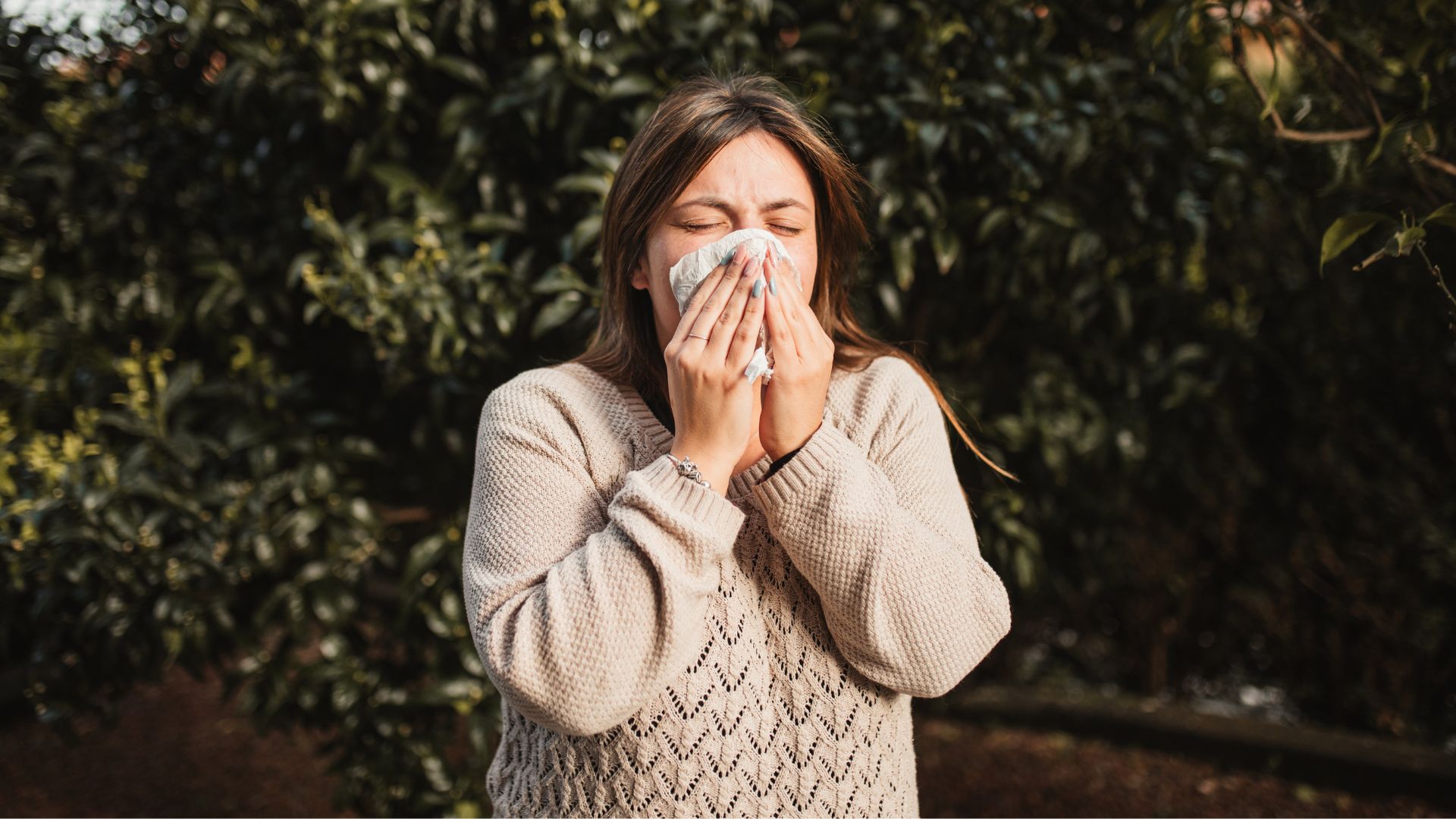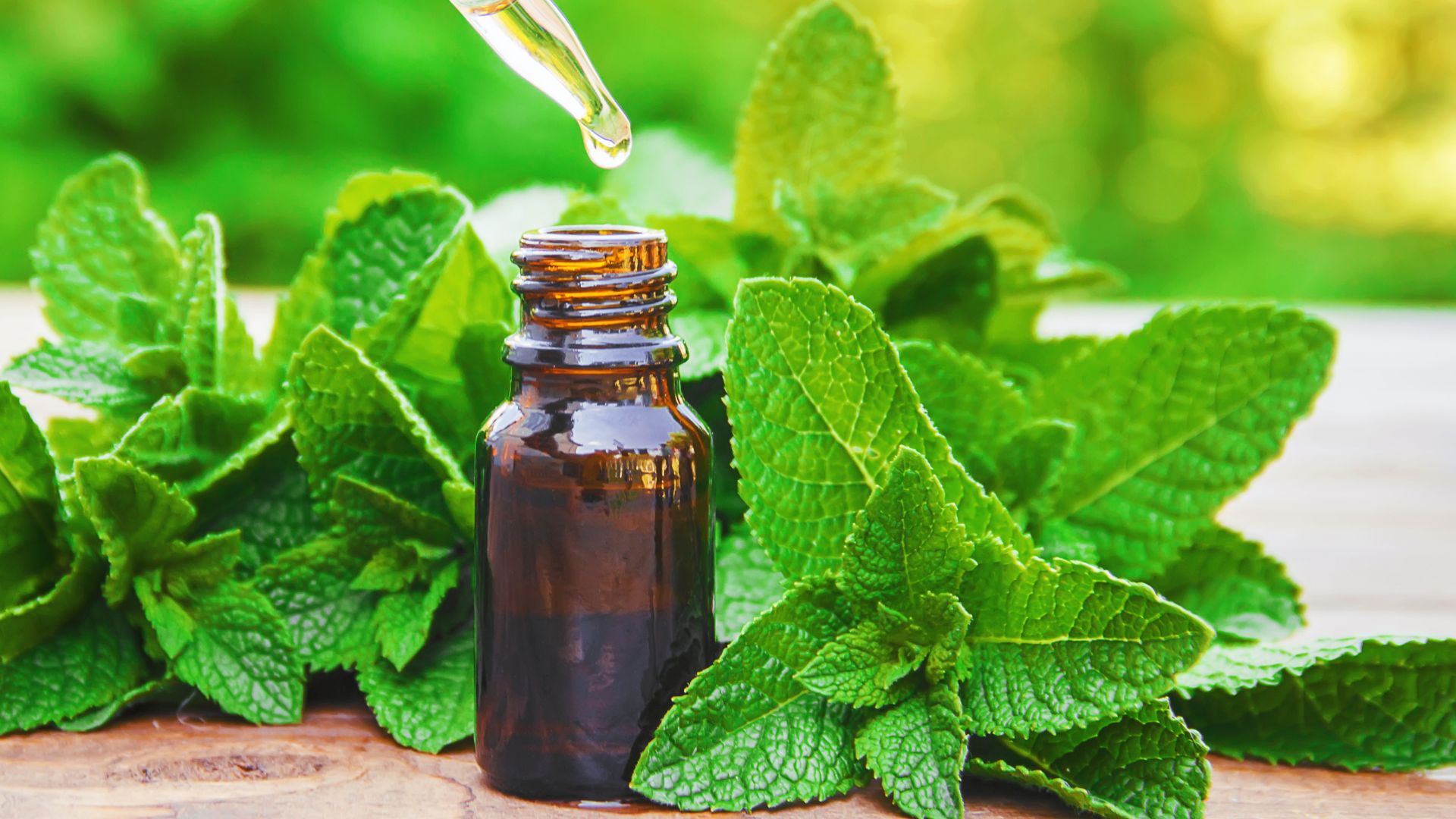
A hay fever cough can linger for longer than expected when pollen levels are high, and many people believe they've been taken down by a summer cold. But, it's a very normal sign of seasonal allergies.
A hay fever cough is caused by excess mucus dripping down the back of your throat (postnasal drip), creating a tickle, which can lead to a cough. Hayfever can also worsen asthma for sufferers due to the inflammation in the airways. This isn’t much fun at a time of year when we all enjoy spending more time outside.
Luckily, some natural hay fever remedies target coughs and other allergy symptoms without needing to reach for over-the-counter medication.
"Nature offers many amazing ingredients to help relieve you of nasty cough symptoms, and it seems as though - judging by the Puressentiel data - that many Brits are already discovering the power of nature. Only one in 10 said natural solutions were not effective," says Dr Tim Bond, a chemist and natural health specialist who works with Puressential.
We all know hot honey and lemon is fail-safe relief for a cough, but there are other remedies you might not have tried before. Puressential's Dr Bond and GP Dr Nisa Aslam reveal all.
Hay fever cough remedies
1. Eucalyptus
The oil extracted from eucalyptus can help clear mucus from your airways and reduce inflammation, which can help you breathe easier. It also has antiseptic properties.
Many people inhale the steam created when the essential oil is combined with warm water in an essential oil diffuser to ease their hay fever cough symptoms.
Sign up to our free daily email for the latest royal and entertainment news, interesting opinion, expert advice on styling and beauty trends, and no-nonsense guides to the health and wellness questions you want answered.
2. Pinewood
Pinewood, or Scots pine, is a natural ingredient with anti-inflammatory and antioxidant properties. "It's an essential oil often used to help respiratory system ailments such as asthma, bronchitis, catarrh, coughs, colds, sinusitis and sore throats,” says Dr Bond.
You can also drink pine teas and buy syrups with the ingredient, specially designed to offer relief from dry, tickly coughs.
3. Tea tree
You might think of tea tree as an essential oil for skin conditions, but it can also help with coughs. Dr Bond says it has strong antibacterial properties that help with infections in the respiratory tract, such as flu and bronchitis. This makes it the perfect relief for a hay fever cough.
4. Peppermint
Peppermint oil and peppermint leaf can help clear catarrh - a build-up of mucus in the nose, sinuses, and throat. This is what causes the constant need to clear the throat - one of the more irritating symptoms of a hay fever cough.
It also offers relief from inflamed mucous membranes inside the mouth and throat, easing a sore throat.
Peppermint oil can be rubbed on your chest, or you can inhale it in a vaporiser to relieve your symptoms, the doctors say.

5. Lavender
If you're looking to know how to sleep better in the lead up to summer and hay fever season, lavender is the essential oil the doctors recommend.
Lavender and linalool - a component of lavender - have been shown to increase relaxation and improve sleep, while also boosting mood and relaxation.
6. Erysimum
Research has shown that remedies containing erysimum, or wallflower as it's also known, can help soothe throat pain and inflammation of the respiratory tract.
The plant contains compounds called glucosinolates, which thin out the mucus and ease breathing for many people.
You can find erysimum in lozenges and cough syrups.
Why does hay fever cause a cough?
A dry cough is one of the common symptoms of hay fever. Pollen and other allergens get into the body through the nose and mouth, irritating the airways. The body reacts to these irritants, trying to clear them, by coughing (and other symptoms like a runny nose).
As noted, the cough might also be caused by postnasal drip, where mucus gets down the throat, irritating it and triggering a cough, according to the NHS.
Other ways to ease a hay fever symptoms
- Keep windows and doors closed to avoid pollen from coming into your home
- Choose low-allergen plants for your garden
- Have a shower or bath before bed to stop pollen from transferring onto your bed linen
- Wear wraparound sunglasses to keep pollen out of your eyes
- Put Vaseline around your nostrils to trap pollen, preventing it from entering your body through your nose

Kat Storr has been a digital journalist for over 15 years after starting her career at Sky News, where she covered everything from world events to royal babies and celebrity deaths. After going freelance eight years ago, she now focuses on women's health and fitness content, writing across a range of UK publications.
From perimenopause to the latest fitness trends, Kat loves researching and writing about it all. She's happy to give any fitness challenge a go and speaks to experts about wellbeing issues affecting people every day.
